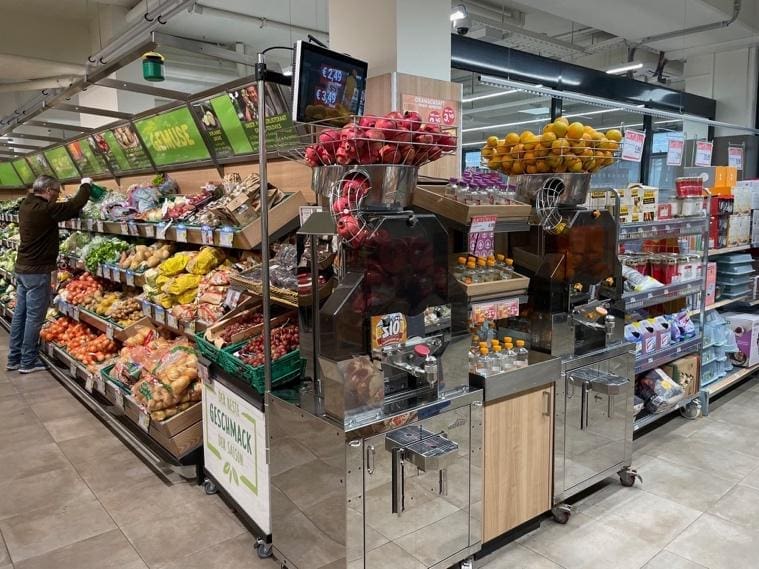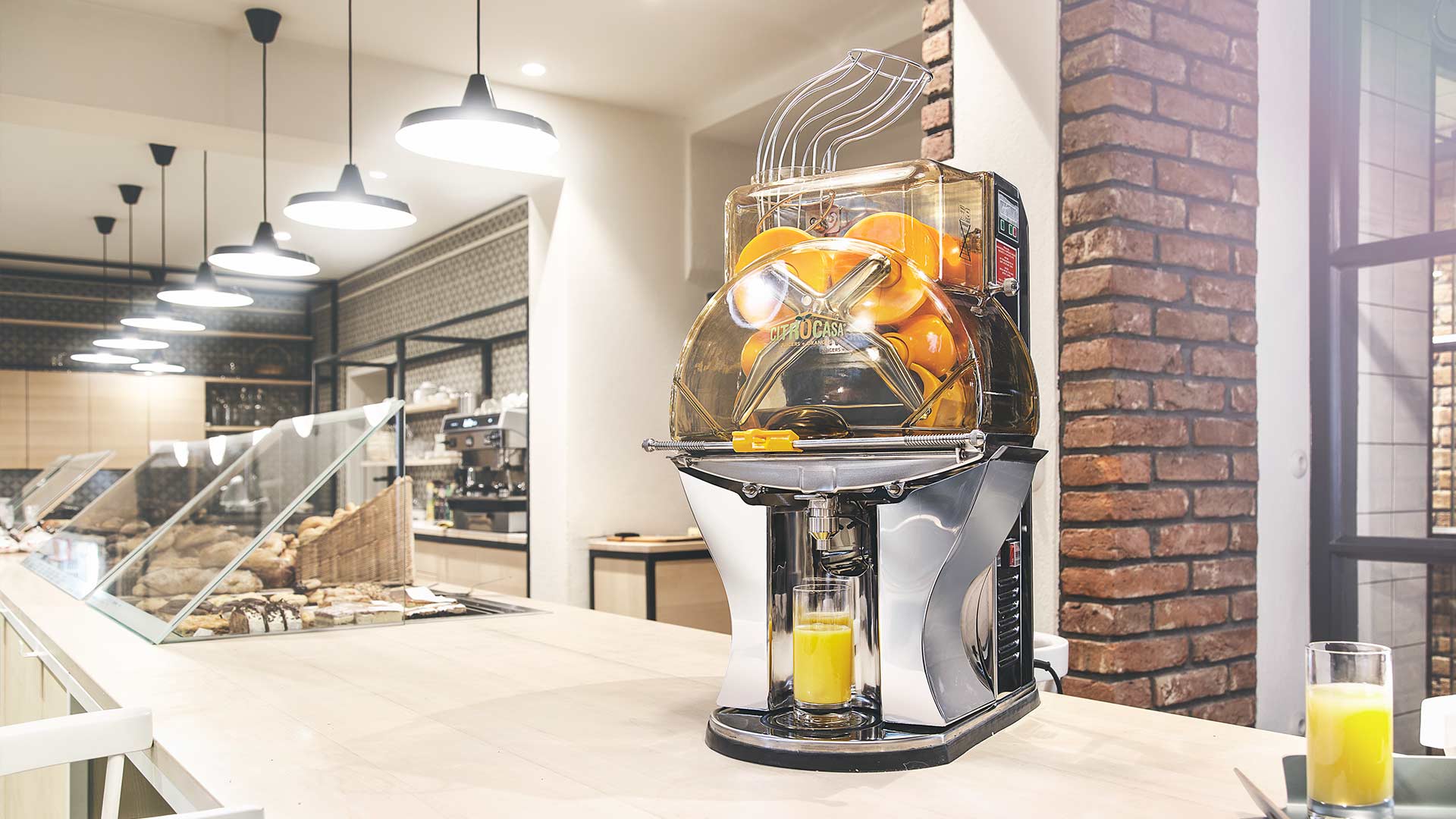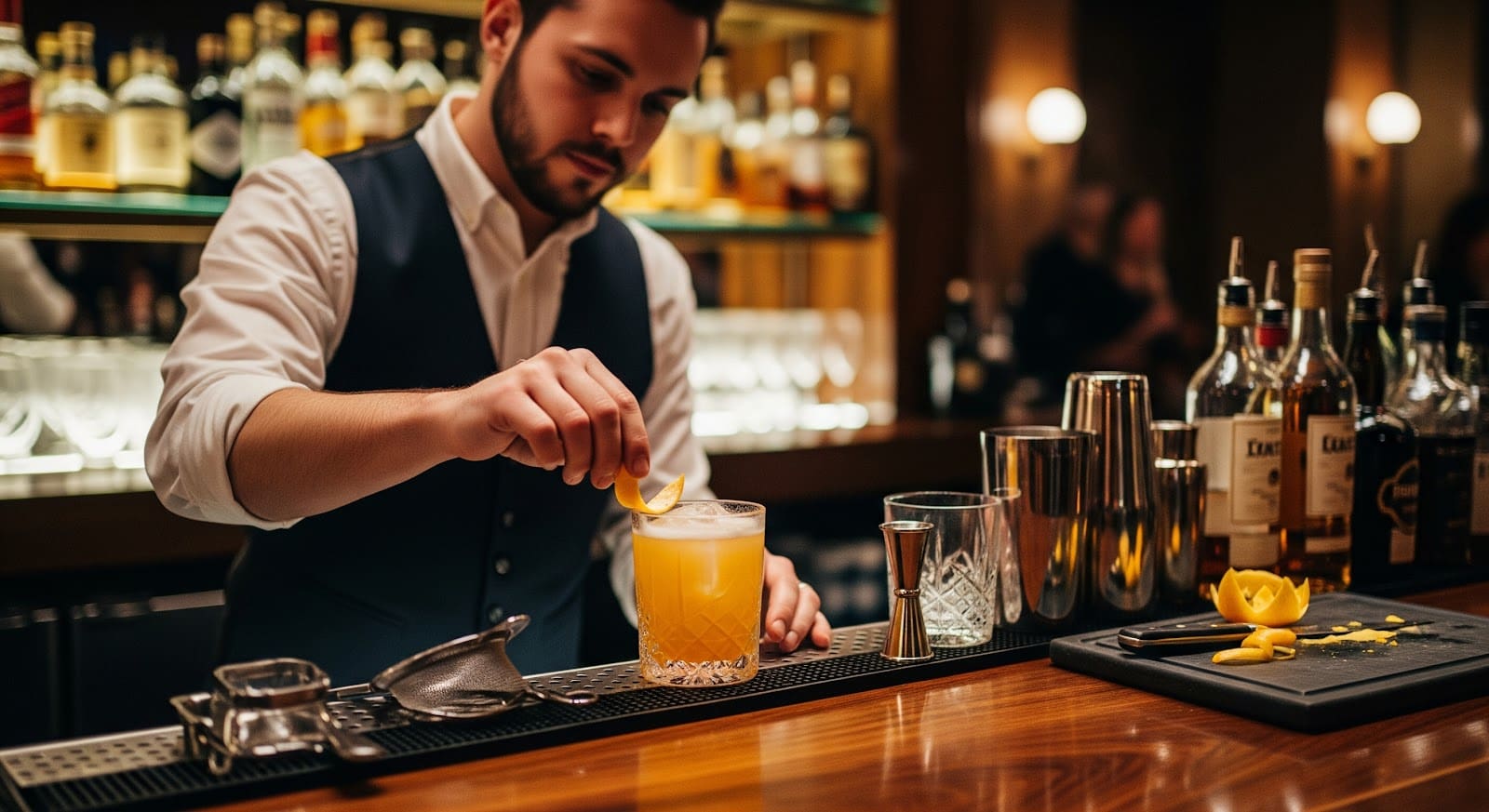Supporting Success and Profitability with Foodservice Consultants
Anyone who has owned or managed a foodservice facility, such as a hotel, restaurant, or event venue, knows how challenging it is to deliver a consistently outstanding customer experience. At the same time, the owner/operator has to optimize the efficiency, functionality, and safety of their operations. Having the right design and the right infrastructure in place is crucial for achieving these goals. This is where foodservice consultants can add true value.
In this blog, we want to give some insights into
- What foodservice consultants do.
- How they select equipment.
- How we at Citrus America support consultants in their efforts.
In addition, we will also address a few common myths surrounding the services they offer.
WHAT IS A FOODSERVICE CONSULTANT?
Foodservice consultants help their clients realize their visions, ideas, and concepts.
FCSI (Foodservice Consultants Society International) describes foodservice consultants as independent professional advisors who help their clients achieve their goals through the design and implementation of foodservice facilities and/or operations/management systems. They provide expertise and assistance that does not exist in-house at the foodservice establishments they serve.
Foodservice consultants usually work for their clients for a defined project or scope of work. They receive a consulting fee for their services. In exchange, they give independent expert advice, provide valuable education on a wide range of topics, bring concrete ideas and designs to the table, and guide the implementation process. Their goal is to provide optimal solutions and enhance their client’s business.
One key advantage to using a foodservice consultant is their independence and objectivity. Whether designing commercial kitchens and large complicated operations or small stand-alone spaces, their extensive experience and objectivity can add real value for any foodservice establishment.
AREAS OF FOODSERVICE EXPERTISE
The scope of work a foodservice consultant can deliver varies widely depending on a customer’s needs as well as the consultant’s area of expertise.
Foodservice consultants specialize in many different areas. The long list of specialties includes compliance, food safety & hygiene, human resources, business & financial strategy, environment & sustainability, legal support, IT systems, waste management, and more. Key areas are space, interior, and workstation design.
A client may decide to involve a foodservice consultant to
- Develop a brand-new facility or foodservice concept,
- Evaluate and/or renovate an existing facility,
- Help identify and resolve existing problems,
- Help improve operational performance, or
- Support ownership and/or management with an independent, third-party opinion in a decision-finding process.
There are a host of situations where the ownership or management of an establishment may need independent advice and expertise. Owner/operators can count on quality foodservice consultants to provide that professional and objective support.
WHO SHOULD CONSIDER USING A FOODSERVICE CONSULTANT
The list of facilities that could greatly benefit from using a foodservice consultant is quite long. Here are a few examples of the concepts and designs that consultants can enhance:
- Bar concepts and bar design,
- Restaurant design: front of the house,
- Restaurant kitchen design: back of the house,
- Hotels, resorts, and casinos,
- Healthcare and assisted living facilities,
- Fitness clubs, gyms, and sports facilities,
- Event locations, such as stadiums and convention centers,
- Corporate spaces,
- Educational facilities.
FOODSERVICE DESIGN AND EQUIPMENT SELECTION
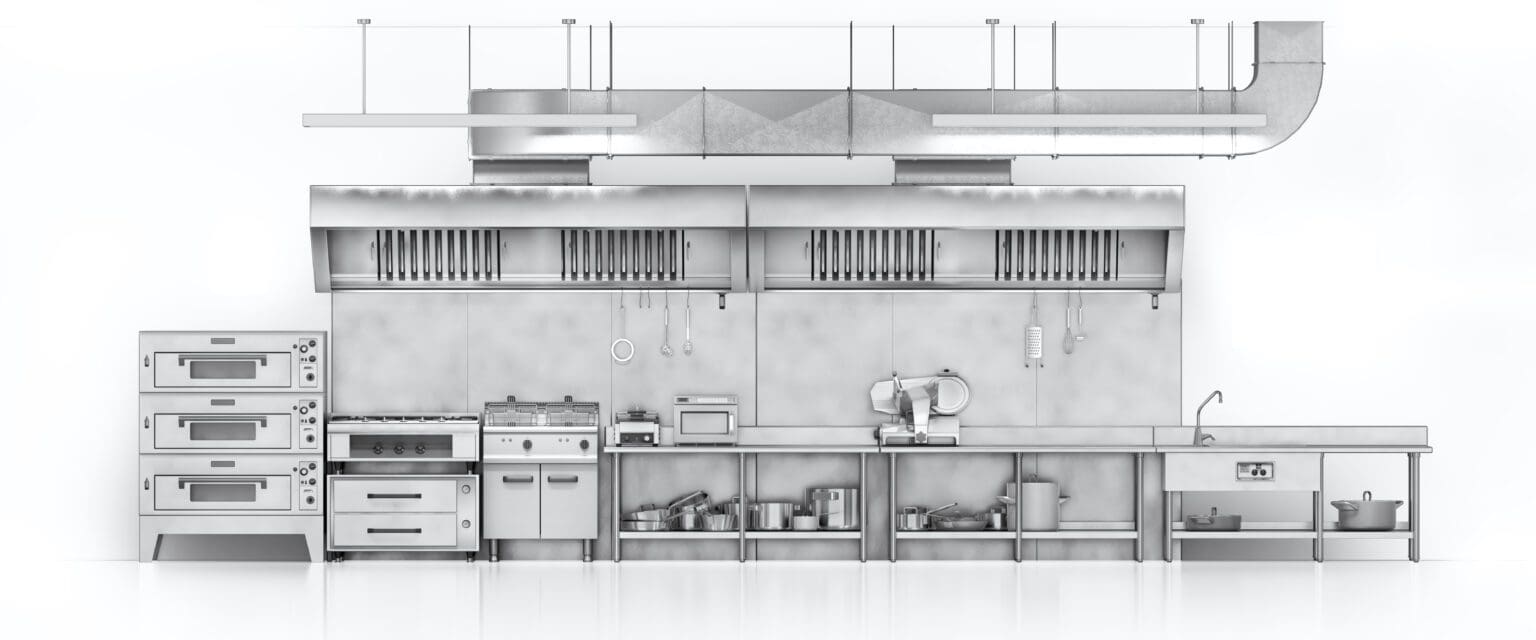
Foodservice design consultants help create optimal spaces for their clients. That also includes finding the best equipment and infrastructure for their clients’ needs.
How a facility is designed and equipped can make a big difference in its operational safety, efficiency, and cost structure. It can also have a major impact on customer attraction and retention, especially in locations where the equipment is part of the aesthetic design.
Using aesthetically pleasing, distinctive equipment as an eye-catcher is a great opportunity for establishments to stand out and create a unique customer experience – in addition to the functionality, efficiency, and ease of use the equipment must ensure. Decisions regarding design will have a huge impact on branding and customer messaging. That’s one of many areas where foodservice design consultants play an important role.
“One of the major responsibilities of a professional foodservice design consultant is the selection and specification of the foodservice equipment used in the design of an institutional or commercial foodservice project.”, says Richard V. Dieli in his article “How FCSI Consultants Make Equipment Selections”.
THE PROCESS OF EQUIPMENT SELECTION
Equipment selection takes place early in the design process, namely in the initial programming stage, Dieli explains. As a first step, it is crucial to understand the concept pursued by the client and the application of the equipment. The needs and requirements resulting from the application flow into the equipment selection and the overall design. Space is designed with the equipment in mind.
Some Equipment Examples
A great example of this would be high quality espresso machines that can greatly enhance the look, feel, sound, and taste experience a customer has in a café environment. At the same time, this equipment must be efficient, reliable, hygienic, safe to use, and serviceable. In addition, it has to fit in the space allotted and support the image of the location.
A few other examples are a highly visible pizza oven, heating and cooling equipment in an open kitchen space, beer taps on display, and water purification equipment placed at front-of-house server stations. Naturally, along with each of these selections comes a range of additional decisions related to infrastructure, such as counters, electricity, water, and air handling.
Training and support are other key elements. Even the best equipment can only add value to a facility if employees know how to use it, clean it, and maintain it with ease.
Naturally, foodservice design consultants must also consider equipment costs. For that, they don’t just look at the initial purchase price. They have to consider accessories that may be required, installation costs, operating costs with respect to labor and energy, repairs, warranties, and more. This is what we call the Total Cost of Ownership.
Then there is equipment quality. Is the equipment durable and how long will it hold up? Does it perform as described by the manufacturer and is there a proven track record of continued high performance over time? Does it have long-term value? What customer service support is available?
Equipment demonstrations and side-by-side testing are further important steps in the decision-making process. In addition, foodservice consultants may get feedback from other relevant parties, such as current equipment users, trusted equipment representatives, or other designers and consultants.
These are some of the key questions researched by foodservice consultants. Depending on the concept and application, other aspects may come into play.
COMMON MYTHS SURROUNDING THE WORK OF FOODSERVICE DESIGN CONSULTANTS
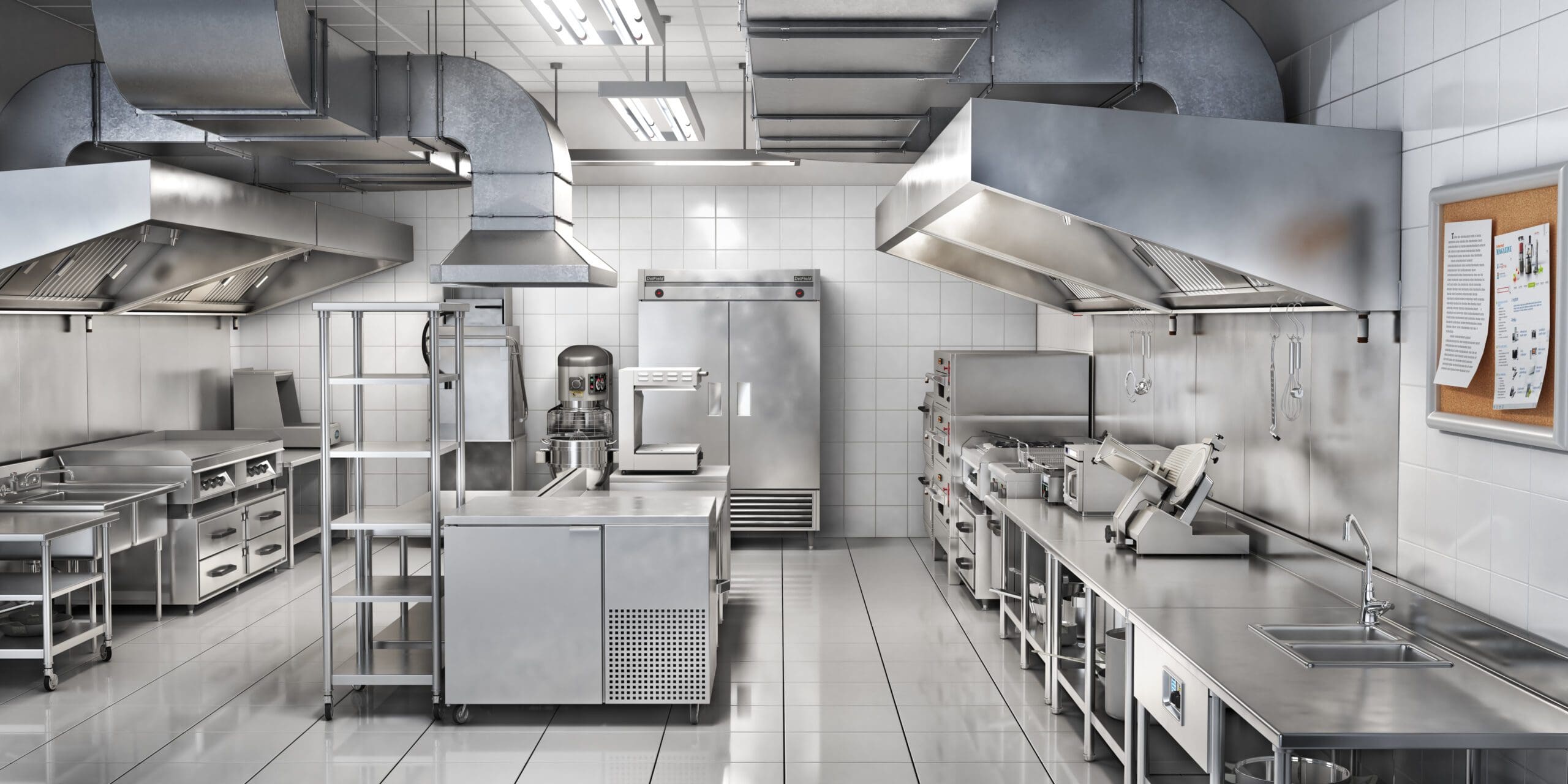
- Foodservice design consultants work for equipment manufacturers and receive a commission from them. – NO. Foodservice design consultants receive a consulting fee from their clients, not the equipment manufacturer. Objectivity is one of their main assets.
- Food service design consultants pick the equipment toward the end of the design process, depending on the budget left. – NO. Equipment selection is a critical step early in the process. It is based on customer needs, overall concept, application, research, and key data. Good design happens with the equipment of choice in mind.
- Restaurant consultants, bar consultants, hotel consultants, foodservice design consultants, … it’s all the same. – NO. All these consultants have important roles in the foodservice and hospitality industry, but they are specialized in different facilities, niches, and areas of expertise. The field of foodservice consulting is huge. Foodservice design consultants are focused on optimizing space for their clients.
HOW WE AT CITRUS AMERICA COOPERATE WITH FOODSERVICE CONSULTANTS
Many of our clients in the foodservice industry approach us to learn about the best ways to integrate juicing into their operations. Due to our 12+ years of experience in the US and another 20 years of Citrocasa experience in Europe, we at Citrus America have acquired a lot of expertise on how to optimize fresh juicing for success and profits. And we are always excited to share our knowledge!
In addition to helping our clients directly, we also work with foodservice consultants, so they can design and implement the best solutions for their clients.
At Citrus America, we understand the important role consultants play in the success of concepts and spaces. Our team can provide deep insights into commercial juicing applications, machine selection, space efficiency, and ways to generate profitability.
It doesn’t matter if the commercial citrus juicer will be located in a ‘for profit’ or a ‘not for profit’ foodservice location, our core strategy is to deliver on Taste, Hygiene, and Efficiency. With the proper fresh juice strategy, we can help food service locations offer incredibly fresh experiences, dramatically improve food and beverage flavor profiles, increase labor efficiency, and increase profits.
We have thousands of machines installed across the US and many years of experience in supporting the foodservice and hospitality industry with our expertise in North America. We understand that each client and each application are unique. We don’t offer one-size-fits-all solutions. Rather, we use the experience gained over the years to come up with the best solution for every new client we meet.
Here are concrete ways how Citrus America supports designers and consultants in their efforts.
- Application and workflow
Once we know the concept and application, we can give advice and share our insights on a wide range of topics, including the juices needed, capacity requirements, space requirements, fruit selection and storage, daily workflow steps, serving strategies, and more. These insights can help foodservice design consultants make informed decisions.
- Technical specifications, CAD, REVIT
We provide detailed technical specifications, such as electrical requirements, dimensions in inches and millimeters, and weights. Our products are available as CAD and REVIT files to support consultants’ efforts easily and efficiently. Furthermore, these files are available on KCL and AutoQuotes.
- Equipment selection
There are many different citrus juicers on the market, and it can be confusing to find the right one for a particular application. We are happy to explain the differences between our and competitor equipment, but also between the different juicers we offer. And while we know that our juicing equipment is superior, we understand that it may not fit every juicing concept or application. We recommend what is best for the client.
- Equipment demonstrations
We can arrange virtual demos and physical demos as required. Most foodservice consultants want to see the equipment in action, and we support that. We also have various videos incorporated into our blog, so designers and clients can get a first glimpse of how the equipment works and what makes it different from other juicers.
- Training and ongoing supportWe have detailed training videos that provide additional information relevant to the design process. Our videos
-
- Show how the juicers work,
- Demonstrate in detail how to disassemble a juicer,
- Give step-by-step cleaning instructions, and
- Provide step-by-step instructions for re-assembly.
We also help with corporate training strategies and procedures. We believe that safety & hygiene are crucial for success. And we have an in-house support team ready to answer questions.
THE VALUE OF THE RIGHT EQUIPMENT
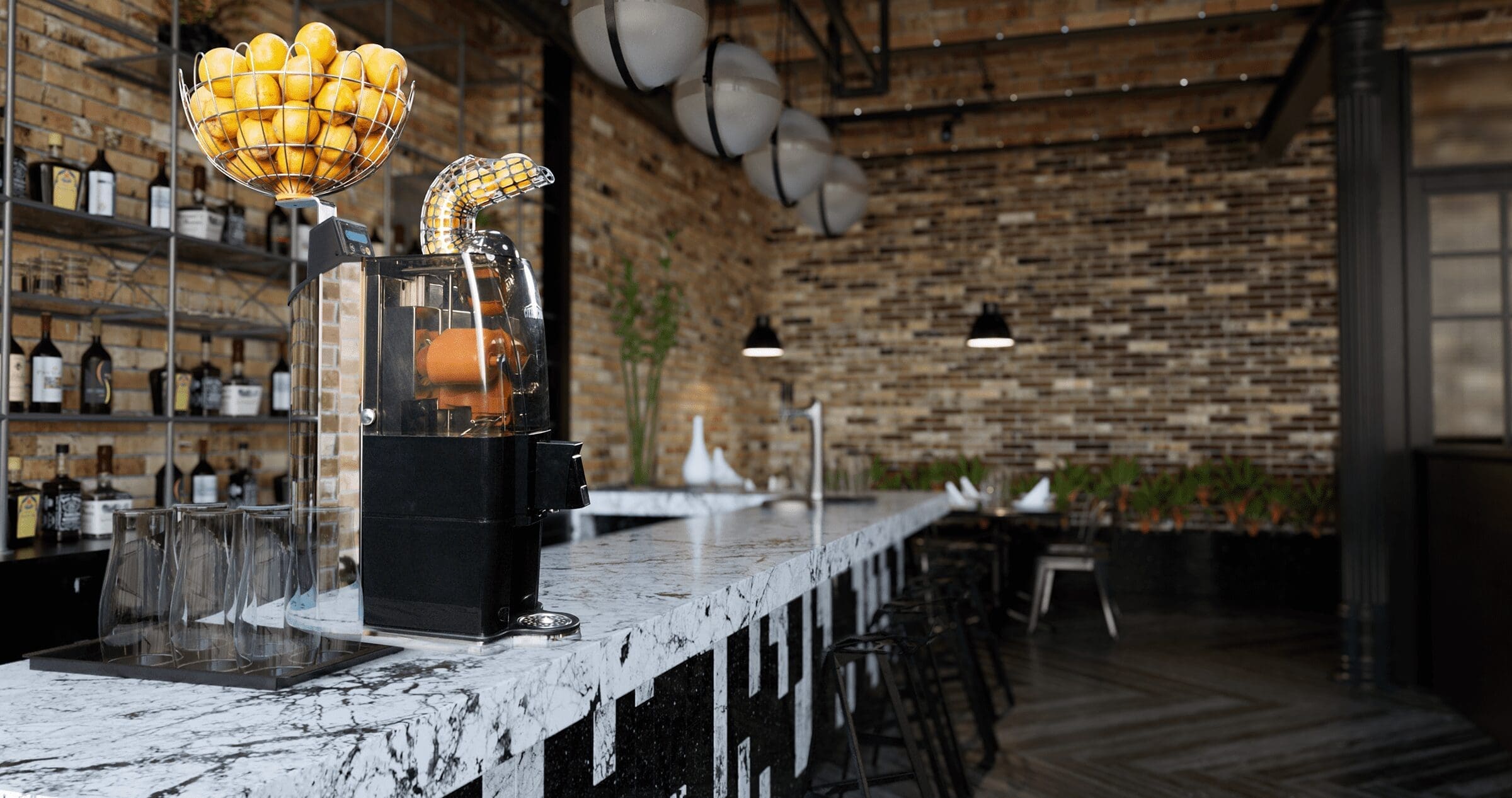
10 THINGS TO CONSIDER WHEN SELECTING JUICING EQUIPMENT
- Taste / Juice quality (the best product)
- Hygiene and Safety (the safest freshest products)
- Efficiency (production speed, cleaning speed, output, labor efficiency, etc.)
- Ergonomics (employee safety, daily use, enjoyability, etc.)
- Aesthetics (design, beauty, noise, smell, etc.)
- Technical specifications (dimensions, electrical, mounting options, etc.)
- Quality (consistency, reliability, equipment uptime/availability, etc.)
- After-sales service (training, spare parts, service, technical support, etc.)
- Applications (i.e., juice, cocktails, recipes, etc.) across the operation, including additional business (not just direct profits from juice, but attracting business, supporting the brand, repeat customers, etc.)
- Financial returns and total cost of ownership (ROI, repairs, expected equipment life)
We at Citrus America believe in investing in value – and that value is the result of top quality, outstanding design, and superior performance over time.
About Citrus America – Citrus America has been driving innovation and quality in the juicing segment for more than a decade in North America and the Caribbean. We’re the exclusive master distributor for Citrocasa and have driven many innovations and quality improvements in juicing equipment. In addition to equipment solutions, we provide tailored training and support strategies to help our customers earn Healthy Profits.
About Citrocasa – Citrocasa has been the pioneer in producing the most innovative and highest quality food grade stainless steel commercial citrus juicing equipment to the grocery, hotel, and restaurant since 2005 across Europe. The Citrocasa 8000 Series was launched in 2005, with the 8000XB and the 8000SB. The 8000SB-ATS was launched in 2013. The Citrocasa Fantastic Series was launched in 2010 with the Fantastic M/AS. The Fantastic F/SB followed in 2011. Between 2015 and today, Citrocasa has launched the Advance upgrades, The Revolution, The Eco, and has added new options for on-line connectivity continuing its role as being the leader in commercial citrus juicing quality and innovation.







